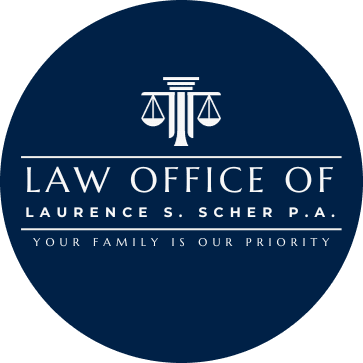
Understanding Florida Marchman Act: A Step-by-Step Breakdown

Posted on February 14th, 2024
In today's society, substance abuse is a prevalent issue that affects individuals and families alike. When faced with a loved one struggling with addiction, it can be challenging to know where to turn for help.
Fortunately, Florida's Marchman Act provides a legal framework for families to intervene and seek assistance for their loved ones who are unable to control their substance abuse.
In this blog post, we'll provide a step-by-step breakdown of the Florida Marchman Act, including what it is, how it works, and how to initiate the process.
What is the Florida Marchman Act?
The Florida Marchman Act, officially known as the Hal S. Marchman Alcohol and Other Drug Services Act of 1993, is a civil law designed to provide a legal framework for families to intervene when a loved one is struggling with substance abuse.
This legislation empowers family members, friends, or legal representatives to petition the court for involuntary assessment, stabilization, and treatment of individuals unable to control their addiction.
The Marchman Act aims to facilitate early intervention and access to necessary resources for individuals battling substance abuse, ultimately promoting recovery and well-being within the community.
How Does the Marchman Act Work?
The Marchman Act includes the following processes to help your loved one navigate the journey to recovery with clarity and confidence:
- Assessment: The first step in the Marchman Act process is to file a petition with the court for an assessment of the individual's substance abuse. This petition can be filed by a family member, friend, or legal representative who has observed the individual's behavior and believes that they are in need of intervention.
- Stabilization: If the court determines that the individual meets the criteria for assessment under the Marchman Act, they may issue an order for involuntary assessment. This allows law enforcement officers to take the individual into custody and transport them to a designated assessment facility for evaluation.
- Treatment: Following the assessment, if the individual is found to be in need of treatment, the court may issue an order for involuntary treatment. This can involve residential or outpatient treatment programs, counseling, therapy, or other interventions aimed at addressing the individual's substance abuse issues.
Now that we've explored the fundamentals of the Florida Marchman Act, let's transition into a detailed discussion on how to initiate the process and Marchman Act someone in need of intervention.
How to Marchman Act Someone
Initiating the Marchman Act process requires careful planning and legal expertise. In this section, we'll explore the step-by-step process of filing a petition and navigating the court system to intervene on behalf of a loved one struggling with substance abuse. Gain insights and guidance to take proactive steps towards seeking help and support for your loved one's journey to recovery.
1. Consultation
Before initiating the Marchman Act process, it's essential to seek guidance from an experienced legal professional who specializes in family law and the Marchman Act. They can help you understand the legal requirements and procedures involved in filing a petition and navigating the court system.
2. Documentation
Gather evidence and documentation to support your petition, including witness statements, medical records, and any other relevant information that demonstrates the individual's substance abuse and need for intervention.
3. Filing the Petition
File a petition for involuntary assessment with the appropriate court in the county where the individual resides or where the substance abuse occurred. Ensure that the petition includes detailed information about the individual's behavior, the reasons for seeking intervention, and any supporting evidence.
4. Court Hearing
Attend the court hearing scheduled to review your petition. Be prepared to present your case and provide evidence to support your request for involuntary assessment and treatment under the Marchman Act. The court will review the evidence and make a decision based on the individual's best interests and the need for intervention.
5. Follow-Up
If the court grants your petition, follow up with the appropriate authorities to ensure that the individual receives the necessary assessment, stabilization, and treatment as ordered by the court. Stay involved in the process and provide support to your loved one as they navigate their journey to recovery.
Related: Navigating Juvenile Legal Waters: A Comprehensive Guide
Final Words
The Florida Marchman Act serves as a crucial legal tool for families confronting the challenges of substance abuse within their midst. This legislation offers a structured approach for loved ones to intervene and provide necessary assistance to individuals unable to control their substance abuse.
At the Law Office of Laurence S. Scher P.A., we recognize the complexities inherent in navigating the Marchman Act and are dedicated to offering our expertise and support to families in need.
Seeking guidance under the Florida Marchman Act? Reach out to us at (561) 806-8777 or via email at [email protected] to arrange a consultation. Let our team assist you in understanding your rights and options under this legislation, and we'll guide you through the process with compassion and proficiency.
Legal Consultation Request
Reach out for a personalized legal consultation with our experienced team. We're here to address your legal needs and provide expert guidance.
Get in Touch
Phone number
(561) 806-8777
